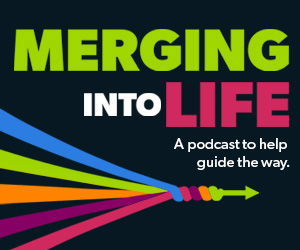Editor’s Note: Your AAA Network is offering readers a chance to sample new content and sign up for subscriptions to offerings from approved affiliated publishers. Your AAA editors have vetted these articles to ensure they are useful and from trustworthy sources.
Have you ever walked into a room, paused, and wondered what in the heck you were looking for in the first place? We’ve all been there. It can be an unsettling experience, especially in a day when we’re hearing more about early-onset dementia, and about the sheer number of people (5.7 million Americans) who have been diagnosed with Alzheimer’s disease. But forgetfulness doesn’t have to be a foregone conclusion: There are simple steps you can take to improve your memory.
“Don’t assume that a poor memory is an unavoidable aspect of aging,” says Janet Sherman, PhD, Chief Neuropsychologist and Clinical Director at Massachusetts General Hospital’s Psychology Assessment Center. “Make an effort to manage your health problems and continue challenging your memory.”
While Alzheimer’s disease and other forms of dementia are not yet entirely preventable, you can learn to boost your ability to organize information, cement it in your mind and recall it more easily. The following “active learning strategies” can help you improve your memory by making information easier to retain and recall.
-
Zero In and Concentrate
Pay attention to one thing at a time—don’t multi-task. Learn to ignore distractions while concentrating on the main points. Think about what you’re learning and why you want to remember the information. Also, limit the amount of information you learn at one sitting.
-
Organize
When trying to boost memory power, it helps to group information by category. For example, to remember what’s on your shopping list, divide items into fruits and vegetables, dairy, and meat. Always keep your keys, purse, wallet, and other frequently used belongings in the same place—like a receptacle on the kitchen counter. Use a calendar, smartphone app, or other device to keep track of appointments and other important dates. Buy an automated medication dispenser to help you remember when to take your pills.
-
Simplify
Break down information into smaller parts and tackle each part separately so you don’t overload your memory. For example, remember numbers by dividing them into smaller units; instead of 125833076, think 125-833-076.
-
Link New Information to Established Memories
Connecting new memories to existing ones makes them easier to remember. For example, remember the name of a new acquaintance by linking her with a friend who has the same name. If you meet someone new named Sandy, associate her with the image of a sandy beach to help you remember her name the next time you meet.

-
Use Multiple Senses
Say the new information out loud. Write it down. Read it over. Or, try casting information in rhymes, acronyms, musical ditties, or other forms that are easier for your brain to encode and recall.
-
Engage Your Imagination
Forming mental pictures or visualizing action can help you remember. For example, to remember the time of your 3 p.m. doctor’s appointment, visualize yourself entering the office as the clock strikes 3.
-
Practice
Rehearse new information to embed it in your memory. Repeat names of people you’re meeting for the first time. It’s like learning a new piano piece: You have to practice it a number of times until you learn the music thoroughly.
-
Use Memory Aids and Cues
Use aids such as calendars, smart phones, and “sticky notes.” Use a notebook to jot down details on complex or extensive information. Put your empty medicine bottle by the door to remind yourself to refill your prescription. Tape a note on the refrigerator to help you remember to buy milk. Use clocks with timers to remind you to turn off the oven.

How to Improve Memory: Take Care!
To complement these strategies, take care of yourself by watching what you eat, getting regular physical exercise, managing stress, and keeping a consistent sleep pattern.
- Diet: An eating plan that contains plenty of healthy, unsaturated fats have been linked to lower rates of dementia and mild cognitive impairment. Rich sources of unsaturated fats include nuts, seeds, vegetable oils, and avocados. Also, get alpha lipoic acid in your diet; this antioxidant, found in such vegetables as spinach, broccoli, tomatoes, peas, and Brussels sprouts, has been shown to improve memory and reduce cognitive decline. And vitamin E—found in kale, spinach, asparagus, almonds, and sunflower seeds—has been linked to improved memory and cognitive performance.
- Exercise: Recent research conducted at the University of Kansas Medical Center indicated that older adults can improve brain function by raising their fitness level. Any exercise helped improve brain function but the intensity of the exercise appeared to matter more than the duration. The brain is a highly vascular organ, meaning that it requires good blood. A brisk walk, dancing, swimming—it doesn’t matter so much what you do. What matters is that you move vigorously, preferably on a daily basis. If you’ve been sedentary for a long time, start by getting out to walk every day.
- Stress: Manage the unavoidable stream of stress that hits all of us. Chronic stress shrinks the brain’s hippocampal memory centers, and stress hormones like cortisol temporarily impair learning and recall. It’s not possible to get rid of all the stressors in life, but we can practice purposeful relaxation techniques (examples: meditation, focused breathing, and prayer) while also staying active socially (studies have shown that staying connected to others can benefit brain health).
- Sleep: It’s perhaps the easiest and most important thing you can do to bolster your brain health and keep your memory sharp. “Losing even a few hours of sleep can have detrimental effects on a wide variety of cognitive processes such as attention, language, reasoning, decision-making, learning, and memory,” according to researchers of a study published in the journal Frontiers in Systems Neuroscience. Aim for at least seven hours a night.
Finally, don’t underestimate the brain’s ability to retain information. In a well-publicized study at California-based Salk Institute in 2016, the human brain has a memory capacity on par with the entire Internet.
As Terry Sejnowski, a director and professor at Salk, wrote, “This is a real bombshell in the field of neuroscience. We discovered the key to unlocking the design principle for how hippocampal neurons function with low energy but high computation power. Our new measurements of the brain’s memory capacity increase conservative estimates by a factor of 10 to at least a petabyte—in the same ballpark as the World Wide Web.”

Introducing Mind, Mood & Memory from Massachusetts General Hospital. Start a risk-free subscription today!
MIND, MOOD & MEMORY is the only newsletter devoted exclusively to the mental health concerns of men and women in their 50’s, 60’s, 70’s, and beyond.
In each issue, you’ll learn about the effects of aging on the brain and how to counteract and adjust to them.
You’ll discover how you can trigger the re-growth of memory improving cells in your own brain…healthy foods that make for a brain-friendly diet…which vitamins and supplements include the essential antioxidants that protect the brain.
You’ll find out how prolonged depression can actually injure your brain — and what you should do immediately.
In every issue of MIND, MOOD & MEMORY you’ll discover the latest ways to improve your memory. For example, see how you can…
- Increase your memory power just by doing this with a few friends.
- Lower your risk of dementia by 66 percent by enjoying three cups of this drink!
- Help restore your razor-sharp memory by eating these three luscious foods.
- Easily recall everything from words on the tip-of-your-tongue to where you put your car keys!
- Grow new brain cells directly in the “memory center” of your brain.
Let’s face it, your brain is the star of the show. It doesn’t matter how healthy you are overall – if your mind isn’t in top condition, your health will suffer. That means the most important thing you can do for your health is to take care of your mind.
Let the experts at Massachusetts General Hospital help you improve your mind, mood and memory. Get your risk-free subscription to MIND, MOOD & MEMORY today!
About Massachusetts General Hospital’s Mind, Mood & Memory
Established in 1811, Massachusetts General Hospital is the premier teaching hospital of Harvard Medical School. And recently, U.S. News & World Report ranked Massachusetts General Hospital as one of the nation’s leading institutions in the country for its expertise in psychiatry and aging. If you’re fascinated by the inner workings of the mind…how the brain functions…and would welcome the latest information about how to improve your memory…foods that can reduce the risk of dementia…alternative drugs and supplements that decrease depression…or mental activities that increase cell growth… …then this is for you: MIND, MOOD & MEMORY. Led by Dr. Maurizio Fava, Mind, Mood & Memory offers memory-enhancing tips and helpful insight for caregivers while also probing new research on Alzheimer’s, Lewy body dementia, and similar afflictions.

















